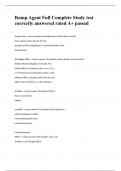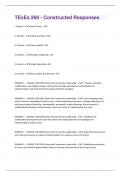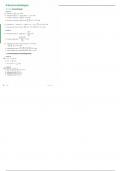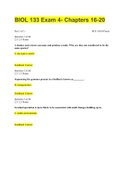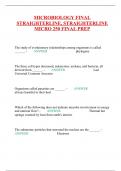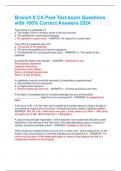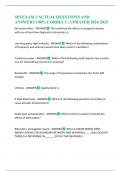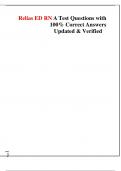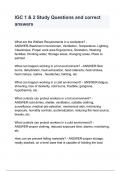Exam (elaborations)
THE Test Bank for Economics Private and Public Choice 17th Edition Gwartney
- Course
- Institution
- Book
Adam Smith believed that if people were free to pursue their own interests, a. less would be produced than if altruism were the guiding principle. b. the public interest would be served quite well. c. they would generally apply their talents to unproductive activities that would generate little ...
[Show more]




